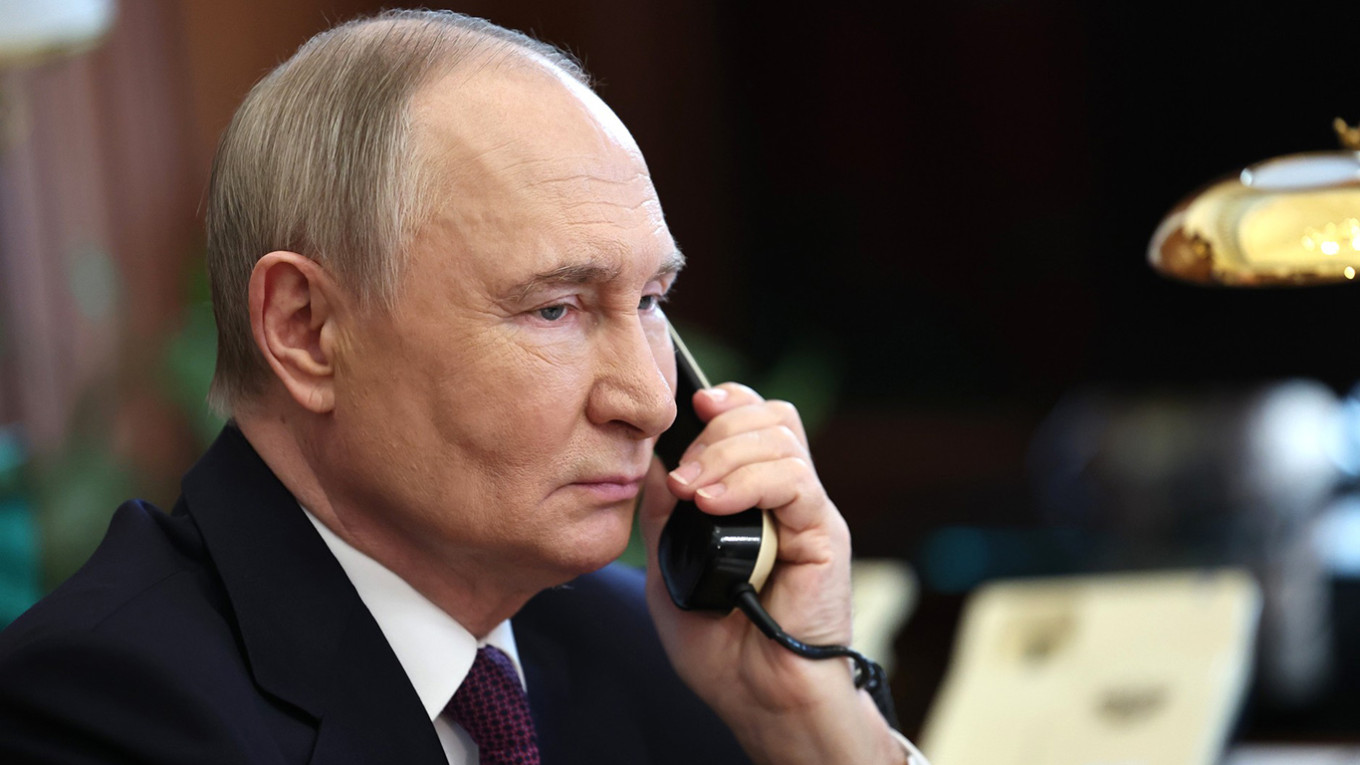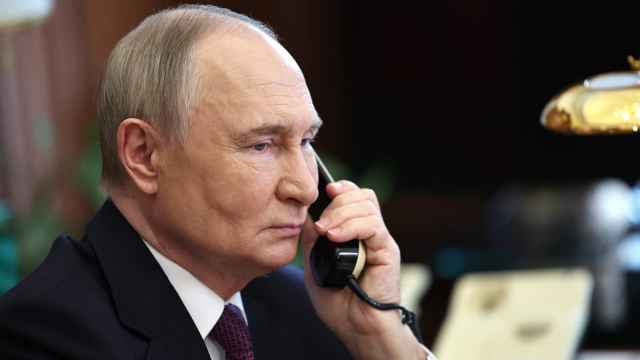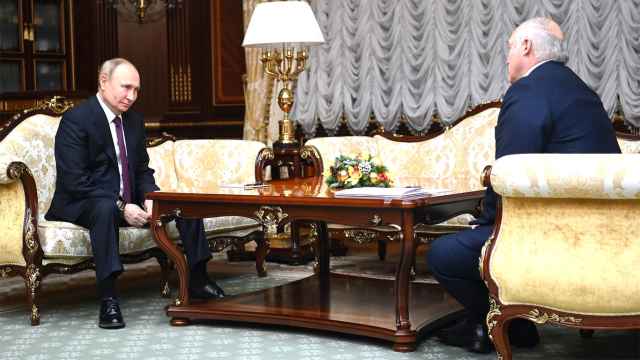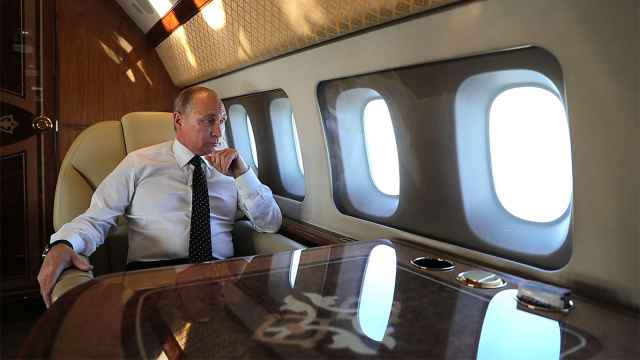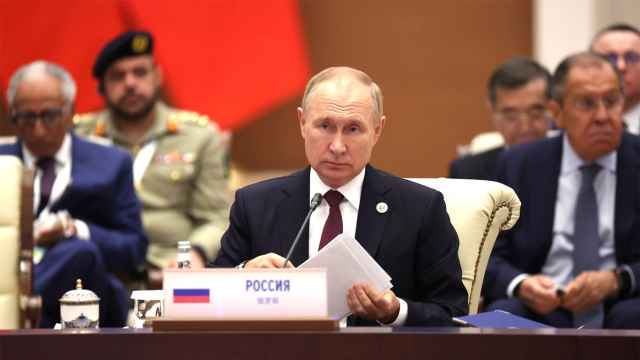President Vladimir Putin on Friday held a phone call blitz with the leaders of China, India, Belarus, Kazakhstan and Uzbekistan to share details of his meeting earlier this week with U.S. President Donald Trump’s special envoy Steve Witkoff.
China’s Xi Jinping told Putin that Beijing welcomed continued U.S.-Russia dialogue on Ukraine and would “always… support making peace and promoting talks,” though he cautioned that “complex issues have no simple solutions,” according to Chinese state media.
Indian Prime Minister Narendra Modi wrote on X that he had a “very good and detailed conversation” with his “friend” Putin on “the latest developments on Ukraine,” adding they reviewed progress on bilateral ties and reaffirmed their “Special and Privileged Strategic Partnership.” Modi confirmed earlier reports that Putin will visit India later this year.
Belarusian President Alexander Lukashenko also discussed U.S. peace proposals with the Russian leader and plans for a potential Trump-Putin summit, which Moscow says could happen “in the coming days.” U.S. officials have not yet confirmed those plans.
Trump, who has given Russia until Friday to end the war or face new sanctions and “secondary tariffs” on its key trading partners, earlier said that “great progress was made” during Witkoff’s meeting in Moscow. However, when asked on Thursday whether his deadline for Putin to agree to a ceasefire was still in place, Trump said, “It’s gonna be up to him, we’re gonna see what he has to say.”
“Very disappointed,” the U.S. president said of Putin, leaving an air of uncertainty about whether he would follow through with his increasingly tougher line on Russia as he presses for a quick end to the war in Ukraine.
Putin also spoke to Uzbek President Shavkat Mirziyoyev and Kazakh President Kasym-Jomart Tokayev on Friday, with the Kremlin saying both Central Asian leaders welcomed steps toward a political and diplomatic resolution of the war. Their offices confirmed the conversations but did not mention backing any specific peace plan.
The Kremlin leader’s outreach came a day after South African President Cyril Ramaphosa said Putin had called to brief him on peace negotiations. Ramaphosa gave his “full support to peace initiatives that will end the war and contribute to a lasting peace between Russia and Ukraine,” according to a readout of the call.
Witkoff, who officially serves as Special Envoy to the Middle East, has traveled to Russia several times since Trump took office in January. The envoy last visited the country in April, when he met with Putin to discuss the possibility of renewing direct peace negotiations between Ukraine and Russia.
His latest trip to Russia came on the same day that Trump ordered an additional 25% tariff on Indian goods in response to New Delhi’s continued purchases of Russian oil. Both India and China have become top buyers of Russian crude since 2022.
While officials in Moscow and Washington have in recent days expressed measured enthusiasm about progress in Ukraine peace negotiations, the details of the Putin-Witkoff meeting remain unknown, and there is little sign the Kremlin leader is ready to abandon his maximalist demands to end the war against Ukraine.
Just last week, Putin told reporters that the conditions for peace he outlined a year ago remain largely unchanged, including Ukraine’s renunciation of occupied territories, a commitment to neutral status and restrictions on the size of its military, as well as regime change in Kyiv.
A Message from The Moscow Times:
Dear readers,
We are facing unprecedented challenges. Russia's Prosecutor General's Office has designated The Moscow Times as an "undesirable" organization, criminalizing our work and putting our staff at risk of prosecution. This follows our earlier unjust labeling as a "foreign agent."
These actions are direct attempts to silence independent journalism in Russia. The authorities claim our work "discredits the decisions of the Russian leadership." We see things differently: we strive to provide accurate, unbiased reporting on Russia.
We, the journalists of The Moscow Times, refuse to be silenced. But to continue our work, we need your help.
Your support, no matter how small, makes a world of difference. If you can, please support us monthly starting from just $2. It's quick to set up, and every contribution makes a significant impact.
By supporting The Moscow Times, you're defending open, independent journalism in the face of repression. Thank you for standing with us.
Remind me later.


